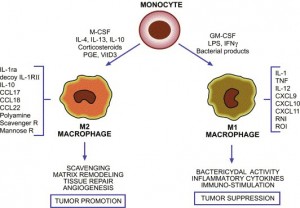Poor Sleep Habits Feed Cancer

Photo Source: Flickr
by Mia Madduri
The Center for Disease Control estimates 70 million Americans suffer from lack of quality sleep. Poor sleeping habits can lead to all kinds of problems: a compromised immune system, anxiety, depression, lack of concentration, poor performance at work. Now scientists are beginning to see a more dangerous problem connected with poor sleep. Recently, a study determined a correlation between poor sleep and the progression of tumors.
David Gozal and a team of scientists from University of Chicago have determined that a gene called toll-like receptor 4, Tlr4 for short, increases tumor development when mice do not get quality sleep. The lack of quality sleep affects the immune system specifically, by making it to deal with the cancer. As a result, the cancer can become more aggressive in combination with this gene and lack of quality sleep.
Gozal and his team engineered an experiment that tested mice in two groups. Mice in the group with sleep fragmentation were housed in a cage and during the day would be brushed every two minutes so they would wake up and fall back asleep. This lasted for seven days, and afterwards the mice were injected with cells from two different tumors types. All of the mice developed tumors within nine to twelve weeks. The mice that got quality sleep resulted in a higher concentration of M1-type cells in the center of the tumor; the mice that had fragmented sleep had a higher concentration of M2-type cells in the center and surrounding the tumor. The researchers repeated the experiment to verify results, and injected the tumor cells into the thigh muscle of the mice because thigh muscle is supposed to help contain the progression of tumors. However, the results showed that the mice with fragmented sleep still had a faster progression of cancer.

Photo Source: NIH
The immune system releases certain cells based on what the body needs – if a tumor has become threatening, the immune system will release tumor-associated macrophages, or TAMs. TAMs are responsible for controlling tumor growth and promoting new tissue growth to repair damage that resulted from the tumor. TAMs are then classified into two groups: M1 and M2. M1-type TAMs try to eliminate tumor cells whereas M2-type TAMs promote growth of blood vessels. If the body releases M2-type TAMs even though the tumor is still present, it promotes the rapid development of the tumor.
Journal Source:
F. Hakim, Y. Wang, S. X. Zhang, J. Zheng, E. S. Yolcu, A. Carreras, A. Khalyfa, H. Shirwan, I. Almendros, D. Gozal. Fragmented sleep accelerates tumor growth and progression through recruitment of tumor-associated macrophages and TLR4 signaling.. Cancer Research, 2014; DOI: 10.1158/0008-5472.CAN-13-3014
Additional Links:
National Healthy Sleep Awareness Project
The Bright Side of Going Dark